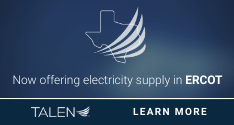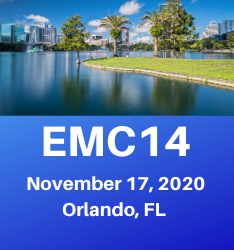|
|
|
|
|
New York UIU, AG Oppose ESCO Petitions Seeking To Offer Green Gas Products, Cite Intent Of Reset Order To Have "Robust Conversation" Before Authorizing Value-Add Products That Do Not Meet Current Pricing Limits
The following story is brought free of charge to readers by EC Infosystems, the exclusive EDI provider of EnergyChoiceMatters.com
The New York Department of State’s Utility Intervention Unit (UIU) and the Office of the New York State Attorney General (NYAG) filed comments with the New York PSC opposing various petitions for declaratory ruling and/or waivers filed by ESCOs, who are seeking authorization to offer various green natural gas products (GGP), as the UIU and AG said that granting the sought relief would be contrary to the "robust" process, envisioned by the PSC's reset order, to evaluate energy-related 'value-added' products (ERVAs) within the Track II process of the proceeding
UIU and the AG noted that, "The specifics of the ESCO’s proposed GGP may differ in each petition, but each ESCO product appears to fit this general definition: a natural gas commodity product that includes an additional mechanism, such as purchasing carbon offset credits or Renewable Energy Credits (RECs), that Petitioners claim will offset some percentage of an estimate for the carbon emissions associated with a customer’s natural gas usage."
"[W]e urge the Commission to deny the Petitions to offer GGPs at this time. As an initial matter, UIU/NYAG observe that several of the Petitions were heavily redacted. This lack of transparency makes it difficult for the public to evaluate and comment on the products that these ESCOs are seeking to offer. Second, the Commission’s December 2019 Order observed the lack of a developed record regarding ESCO’ energy-related 'value-added' product offerings and established a process within which 'value-added' products may be considered (the 'Track II process'). Third, the Petitioners’ proposed GGPs do not qualify for the temporary limited waiver described in the December Order. Thus, the Commission should preserve its intention to have a robust conversation on energy-related10 'value-added' products ('ERVAs') within the Track II process and not consider these products at this juncture," UIU and the AG said
"[T]he [December reset] Commission Order established a Track II process within which potential ERVA products may be considered; consideration of additional ERVA products prior to Track II is premature and contrary to the public interest. Consideration of GGPs now, without a fully developed record, could lead to the adoption of products that do not provide customers with gas service at just and reasonable rates," UIU and the AG said
"[T]he Commission’s December 2019 Order explained the rationale for declining to approve ERVA product offerings in the Track 1. As described in the Order, ESCOs had the opportunity to provide objective evidence regarding current ERVA products in the Track 1 evidentiary hearing proceeding, but failed to do so. Now, following the issuance of the same order that established significant pricing and other protections for ESCO customers, Petitioners are seeking a waiver from those very requirements for the purpose of selling GGPs without any pricing restrictions. Of course, the initial question of whether the 'tethering of' carbon offset programs with ESCO natural gas commodity products actually creates any benefit to customers is completely unexplored, and the overwhelming majority of the Petitions (many of which are heavily redacted) offer little contributions to developing an evidentiary record upon which a determination on this outstanding and very basic question could even be based," UIU and the AG said
"The Commission’s December Order flagged the issues that must be explored in the Track II process to evaluate potential ERVA products, including: (1) which, if any, ESCO-offered energy-related products are most likely to benefit customers and advance the State’s energy policy goals; (2) which products/services should be offered bundled with commodity service and which products/services should be offered separately from commodity; and (3) what rules, including pricing and disclosure requirements, should be applied to these products and services. Further there are a host of unresolved issues relating specifically to GGPs, including the need to define a GGP, how to evaluate and set standards for carbon offset mechanisms, identifying which carbon offset products are acceptable, and establishing requirements regarding the retirement and tracking of the product, to name a few," UIU and the AG said
"A standardized framework that is established in a public process is absolutely necessary for preserving transparency and establishing consumer protections relating to these products. UIU/NYAG urge the Commission to follow the Track II process established in the December Order to meet this objective. Additionally, the public Petitions fail to provide enough information to answer the questions listed in the Commission’s Order, such as how the pricing for the bundled product relates to the pricing if the individual customer was to purchase a carbon offset or REC separately. Finally, a standardized framework that is established in a public, evidence-based proceeding can then support a presumption of fair and reasonable determinations by the Commission on individual product offerings that may be submitted via petitions. Simply put, in authorizing Agway [in the Dec. 2019 order] to offer the EnergyGuard product for a limited time -- while the Track II process is pending -- the Commission was in no way offering a waiver process for products that are wholly different than the Agway product, such as GGPs. Without this initial transparency and opportunity for the public to evaluate the process by which such petitions will be evaluated in the future, consumer protections will be lacking," UIU and the AG said
"The GGPs do not fit within the scope of the waiver process in the Commission’s December Order and there are significant differences between the proposed GGPs and the renewable electric product authorized by the Order. For example, customers can purchase a REC in an electric product that has a one-to-one relationship with their estimated electric energy usage. There is, however, no equivalent measure for natural gas products. Realizing this, some Petitioners are proposing to use a variety of assumptions to determine the amount of RECs to purchase to attempt to offset a portion of a customer’s natural gas usage. The Petitioners also do not appear to provide pricing information on these products, or mention specific pricing guidelines, which causes serious concern for UIU/NYAG," UIU and the AG said
UIU and the AG also noted that carbon offsets can be purchased without bundling such service with energy supply
"In spite of the Commission’s express requirement that a petition for waiver explain the benefits its product provides and how they will reasonably relate to cost, this petition fails to explain the ESCO’s cost of purchasing these proposed carbon offsets or the potential price charged to customers. There are options for customers to buy carbon offsets separately from natural gas supply; for example, on the Green Mountain website, customers can purchase carbon offsets separately, for $14/ton, instead of purchasing the ESCO bundled product. It is unclear which option provides the most cost-effective approach or which standards are necessary and appropriate. These are just some of the questions that need to be explored in the Track II process before the Commission can consider whether GGPs offer customers natural gas service at just and reasonable rates," UIU and the AG said
Case 15-M-0127 et al.
ADVERTISEMENT Copyright 2010-20 Energy Choice Matters. If you wish to share this story, please
email or post the website link; unauthorized copying, retransmission, or republication
prohibited.
June 26, 2020
Email This Story
Copyright 2010-20 EnergyChoiceMatters.com
Reporting by Paul Ring • ring@energychoicematters.com
NEW Jobs on RetailEnergyJobs.com:
• NEW! --
Business Development Manager
• NEW! --
Senior Manager, Energy Market Research & Analytics -- Houston
|
|
|
|









